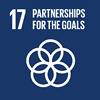This project examines the role of domestic savings in delivering inclusive development and reducing poverty. The project delivers both global findings as well as a systematic comparison of country experiences to address important policy relevant questions in this area.
Domestic financing plays a crucial role in the revenue collection efforts of developing countries. A high rate of domestic savings provides the necessary resources needed for financial independence, sustained economic growth, and the attainment of the Sustainable Development Goals.
However efforts to increase domestic savings rates have not met with much success in low-income countries, especially in sub-Saharan Africa, in spite of financial liberalization and sound macroeconomic policies. We need to know more about the ways to increase domestic financing in these countries.
Key questions
During the recent years, there has been limited research taking place on this important topic, in spite of the increasing availability of good quality data. This project will address the following questions:
-
What are the key drivers of national savings rates?
-
Could alternative approaches, for instance pension funds or fintech, provide new solutions to increase domestic savings?
-
What are the key behavioral determinants affecting people’s savings in low-income countries?
-
What can we learn from the experiences so far in different countries in Sub-Saharan Africa?
This research project is conducted in collaboration with the Kenya Institute for Public Policy Research and Analysis (KIPPRA).
Watch this space
All papers, data, outreach products and opportunities to engage relating to this project will be available on this webpage.
Financial inclusion is vital for achieving Sustainable Development Goals (SDGs). Strengthening domestic resource mobilization, including through international support to developing countries, to improve domestic capacity for tax and other revenue collection is a declared target of the UN 2030 Development Agenda (target 17.1). In addition, SDG 16 is dedicated to the promotion of inclusive societies with effective and accountable institutions. Domestic financing capacity is closely linked to the ability of governments to offer better public services to end poverty (SDG 1), reduce inequalities (SDG 10), and ensure sustainable economic growth (SDG 8).

 Join the network
Join the network



